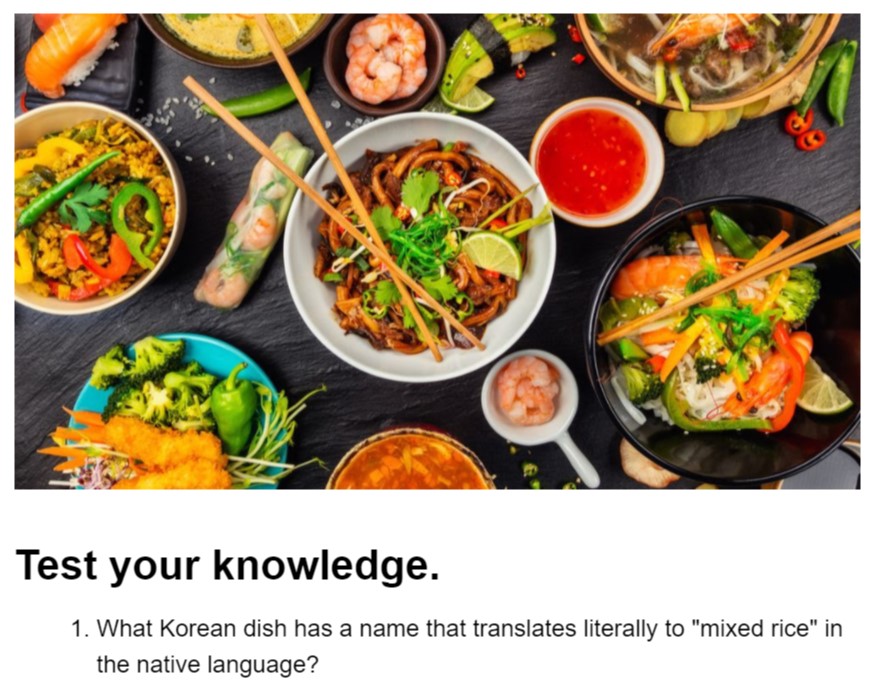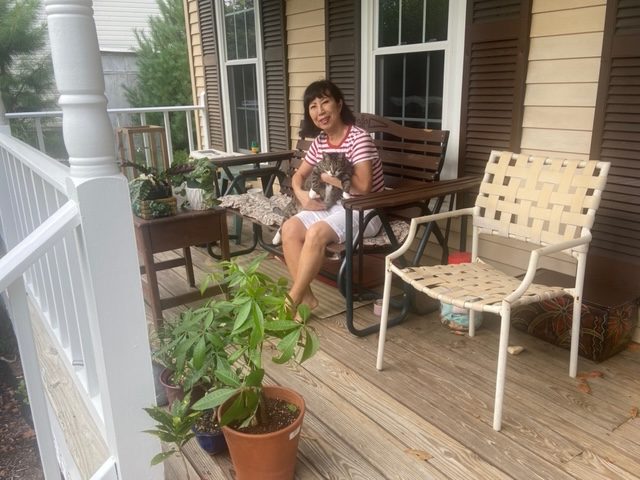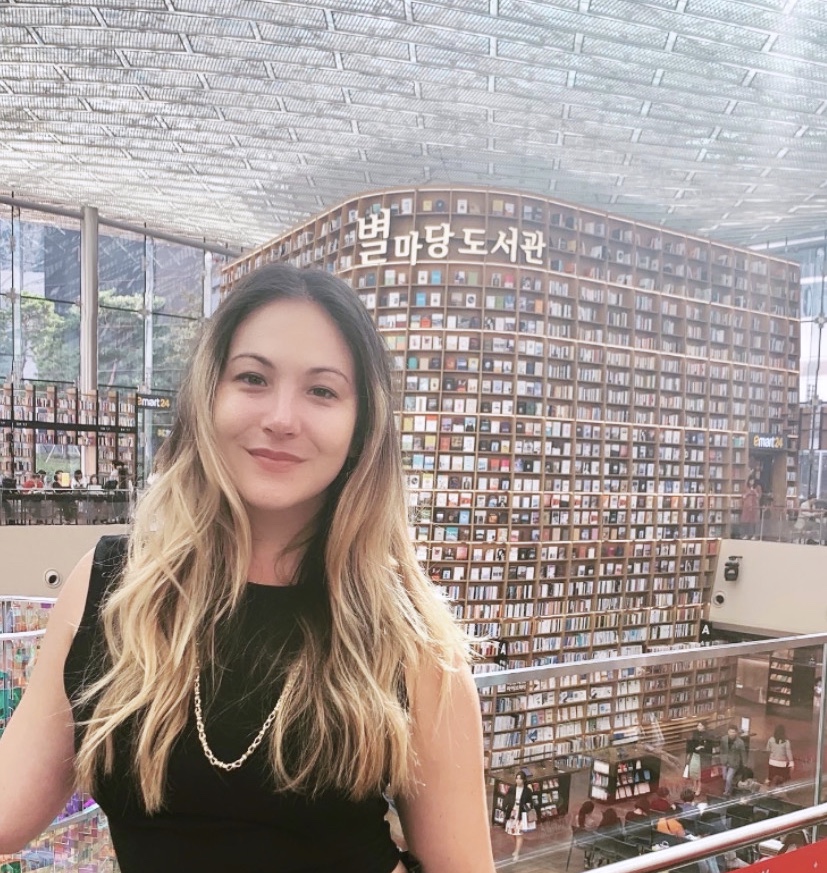Community Spotlight: Asian American and Pacific Islander heritages
Your stories have power. They bring ideas to life and can shape how others see the world, and here at Hearts, we use stories to build community.
This is the fourth post in our Community Spotlight Series, where we feature Hearts who identify with a group and have important conversations about how we can support one another.
Throughout the series, we will work closely with these individuals to create an experience where they can share their culture with fellow Hearts. We’ll hear directly from them about their lives, the safe spaces they’ve created to live their truth, and how we can be better allies.
And then we listen.
Because more than ever, stories that celebrate our differences need to be heard.
A window into Asian heritage
Earlier this year, Asian Pacific American Heritage Month (APAHM) gave Hearts the opportunity to experience and learn more about the rich heritage of their fellow Asian Americans and Pacific Islander Americans.
As part of the planning team, Jason Mei, assistant strategist from the NYC downtown office, reflected on what to share and decided to kick things off with a trivia series. Along with other activities like virtual cooking classes, it was one of many ways the team decided to build awareness about and celebrate Asian cultures.
“Trivia is a fun way to expose people to elements of Asian histories and cultures. I tried to represent not just the bigger countries, but the smaller ones too, like the Pacific Islands.”
As a central and symbolic element of Asian and Pacific Islander cultures, Jason wanted food to be the first theme released in the trivia set. After all, if it’s any indication of food’s universal language, a common greeting in China is “Have you eaten?”
Further content ranged from culture, heritage and even to celebrities with fun prizes for participants. Not only did Jason find this to be an educational process, but he was also heartened to see the high engagement rates.

Molly Krouse, media supervisor at Hearts & Science, further emphasizes the importance of exploring a wide variety of Asian cultures across office events and in mainstream media.
“Not all Asian people are the same. There’s so much diversity within our different cultures and I’m glad to finally see more representation on TV and in movies depicting multifaceted, robust Asian characters.”
So think you know your way around Asian American and Pacific Islander American heritages? Test your knowledge and learn something new along the way. I certainly did!
- Food Trivia: Calling all foodies!
- Celebrities Trivia: Do you know these famous figures?
Safe spaces to share
How Molly sees strength in representation
Molly grew up in Virginia as an Asian American with a South Korean mother and a Caucasian American father. With one foot in each world, she naturally drew influence from both backgrounds but felt a missed opportunity to connect more fully with the Korean side of her family due to language barriers.
She always wanted to be a singer—it was her first career. Even today, she is taking COVID-19 as an opportunity to teach herself the piano and write/record new music, but she has always felt at a disadvantage as an Asian American in the music industry.
At the time, there were no mainstream Asian R&B or pop singers to look up to and no role models to show her that her dream was possible. Thankfully, that has finally started to change.
“I am proud of how Asians are gaining the recognition they deserve in fields like entertainment and music.”
Though Molly has clearly shifted to corporate life, she remains passionate about representation in media and makes time to further explore her culture.
Spending time with her family has always been a safe space for Molly. Being back in her childhood home in Virginia for quarantine has allowed her to reconnect with her heritage.


She’s taken advantage of this time to cook some of her favorite Korean meals with her mom and binge Asian films like “The Farewell,” as shown for a Hearts & Science APAHM event, “Old Boy” and “Parasite.” She also recommends “Burning” on Netflix. For Molly, 2020 has been about being unapologetically herself in every way, both at home and at work.
Outside of her family home, she also found safe spaces with other Asian friends and people of color. Having such a diverse community in Virginia gave Molly the opportunity to grow into her identity.
Molly’s pro tip: “Take opportunities to embrace and explore your culture. I recently visited Seoul, Korea for the first time since I was 7 years old, with my parents. It was such an eye-opening experience and I felt fulfilled after reconnecting with family and experiencing my culture firsthand.”
“Lean into who you are and your unique culture. Asians can historically be less outspoken against discrimination or feel hesitant about showing outward pride, but hopefully we can continue being more visible and keep sharing our perspectives to help others who may be going through similar experiences.”
How Jason found community online
Growing up as an Asian American in the white suburbia of Long Island was difficult for Jason. Immersed in only American culture, he never really had an opportunity to get in touch with his Chinese heritage. There wasn’t a chance to learn his native language, Cantonese, or celebrate important cultural customs like the Mid-Autumn Festival. He looked visually different from others in the community too. Living between two identities, being “seen” was the last thing he felt. Even the few other Asian Americans he knew were adopted. Naturally, they had their own unique experiences.
Jason has an entirely different experience now that he lives in New York City, arguably the most racially diverse metropolitan. It’s a place where he feels like he can connect and take time to explore some of his heritage.
Throughout his childhood and his move to NYC, social media became a safe space to express himself. To this day, he enjoys spending time on Instagram, connecting with his community of online friends. Whether through comments or direct messages, he loves to send memes and share a good laugh with his friends every now and then.
“Maybe it comes with being a part of Generation Z, but I feel comfortable on social media. It’s a place where people get me.”

Jason’s pro tip: Try to get in touch with your own culture. Learn about your family history. Taking the time to explore your identity can have a rippling effect on how you perceive yourself and even treat others.
Work should be a safe space too
Hearts & Science is dedicated to building a space where its employees are recognized and feel seen. There are many ways we are supporting inclusion efforts.
Here’s what’s in the works:
- Commit to using inclusive language. As a company, Hearts & Science is committed to making everyone feel safe, right down to the words that are used. They are currently auditing their communications so that they never use words, even casually, that might alienate or diminish another. Molly shares the impact that careless words can have:
“When I first heard COVID-19 called the “Chinese” virus, I felt sick to my stomach. Now, even going to the store in a diverse town like Virginia with my mom makes me nervous that someone will think or say something negative about her.”
- Inclusive management training. Hearts & Science has long made an effort to hire people who are dedicated to inclusivity across their company. Now they are taking another step forward and intentionally training management to facilitate inclusivity around them.
- Diversity and Inclusion Committee. The HBO team specifically launched a Diversity and Inclusion Committee that Molly is really excited about. “I am proud that my team has taken the initiative to bring about the change we all seek, and to start needed conversations not just within our team, but Hearts and the media industry as a whole.”
Check yourself and consider what you can do to help create safe spaces for Asian Americans and Pacific Islander Americans.
- Check your positive stereotypes. We know negative stereotypes are obviously harmful, but positive ones can be too. Even seemingly flattering ones like everyone being a math genius or piano prodigy or having “tiger” parents obsessed with success and pushing their children to the limits can negatively impact people. Molly shares,
“In some ways, positive stereotypes are more dangerous than some of the typical stereotypes like being sneaky, cheap, cold or emotionless; the positive stereotypes can actually cause people to have less empathy towards Asian Americans who may be struggling.”
“Income inequality is the greatest amongst Asian Americans in the United States. A larger number of Asian Americans live below the poverty line than people assume, due to average high household incomes. There is a stark divide between the top and lowest education and income brackets within Asian communities, and there tends to be a lack of public assistance programs. This is often due to language barriers or the stereotype that Asians do not need these types of programs.”
- Stand up for English-as-a-second-language speakers. Moving to a new country and starting a new life is an incredibly difficult undertaking. If you notice someone is being mistreated or judged based on less-than-perfect English, try to support them rather than judging or ignoring them.
- Wear your Asian pride. Molly Krouse loves to see her friends wearing T-shirts or clothing that publicly support their ethnicity. One of her personal favorites is the Phenomenally Asian T-shirt from the Phenomenal Woman Action Campaign her friend launched. All proceeds from merchandise, including the Phenomenally Asian, Justice for Breonna Taylor and Phenomenal Voter campaigns, go to carefully selected charities!
- Intentionally explore different cultures. Misinformation can reinforce harmful stereotypes. Attend local Asian American events like Chinese New Year, art exhibitions, film events or APAHM. Anything that provides you with an opportunity to turn up, give support and experience their culture will help you understand them better.
Alexis Giua, manager of employee engagement at Hearts & Science, shares, “Ask anyone what’s special about Hearts, and I’m sure that just about everyone here would say, ‘the people.’ We all bring unique perspectives and backgrounds to the table to create better work for our clients, and in turn, we want to spend time celebrating those special differences.”
Though many Asian Americans and Pacific Islander Americans can feel isolated, we can do our part to help them feel seen and appreciated. It’s easy to feel like your actions are only a drop in the bucket, but you have a responsibility to make that drop count. Your opportunity to show support is now.
